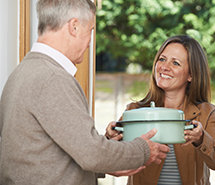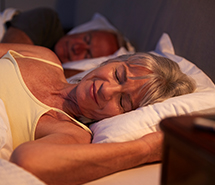Health and Wellbeing
For all of us the current global situation means significant change to our lives and the way we live them.
We have a choice about how we respond to stressful and changing situations. We can panic or we can take a breath and ask ourselves, what’s really important?
Staying physically and mentally well is essential. There are things we can do to help ourselves, our families, our friends and our neighbours to build positive wellbeing during this time.
We wanted to share with you some online resources that might be of interest.
Wellbeing & Resilience resources
Mindset- finding the positive among the negative-
Mindfulness- calming the flurry!
Mindfulness meditation
There are also some useful meditation apps you can download with on tablet or phone. Simply search for these apps in the App Store or GooglePlay.
- The Mindful App -Meditation for everyone
- Calm-Meditation & Sleep
- Bloom: Better You
- Smiling Mind-Meditation for all ages
- Headspace app-meditations made simple
Gratitude
Gratitude apps for your phone or tablet
- Grateful-A gratitude Journal
- Gratitude Happiness Journal-Self-care & self affirmation
Common reactions:
It can feel stressful and overwhelming during an event like the outbreak of the COVID-19 Coronavirus and we can all be affected differently, at these times is important to remember that fear and anxiety, anger, frustration and confusion, sadness and denial are normal reactions to a ‘not normal’ time. During this time it is important as best as possible to keep engaged with the activities that support your wellbeing.
Some tips to maintain a healthy headspace during this time
- Be mindful of exposure to information through stories, traditional and social media. It can be helpful to take a break from the 24 hour news cycles
- Do things that make you feel safe and connected and be in contact with those who are helpful to your wellbeing
- Engage in activities to promote a sense of calm and which help you feeling grounded
For further support during these challenging times contact one of the agencies below:
- Beyond Blue - Anyone feeling anxious or depressed - 1300 22 4636
- Lifeline- Anyone experiencing a crisis - 13 11 14
- MensLine Australia – Men with emotional or relationship concerns - 1300 78 99 78
- Open Arms- veterans and family counselling- 1800 011 046
- Kids helpline- for young people aged 5 to 25 -1800 55 1800
- Suicide callback service - 1300 659 467
- Headspace - for young people - 1800 650 890
If it’s an emergency & someone you know is in immediate risk of harm call 000
Flourish Team
Join this group of passionate community members to share ideas and support health and wellbeing in the community. The Flourish Team actively contribute to the research, project development and delivery of our exciting Health & Wellbeing work.
Skill Sharing
Do you have a skill you would like to share with others? Can you knit? Are you crafty? Do you love to bake? These are all things that others might like to learn.
Community Foodies
Are community members with a passion for healthy living, cooking and sharing their knowledge with community. Community Foodies complete a 6 week Community Nutrition Education training.
For more information on these opportunities, contact Jan or Vanessa on wellbeingteam@cityofpae.sa.gov.au
Life Looks Brighter Outside Brochure(PDF, 6355.06 KB)
Peel, Pop, Pour Brochure(PDF, 692.38 KB)
Think Feet First Brochure(PDF, 726.65 KB)
Make it a fresh snack brochure(PDF, 3170.16 KB)
Seven ways to wellbeing
The 7 Ways to wellbeing is based on the 5 Ways to Wellbeing which introduces you to 5 simple and effective ways to improve your psychological and emotional health.
The 5 Ways to wellbeing are based on extensive international research.
We have added ‘eat well’ and ‘sleep well’, to make up the 7 Ways to Wellbeing as a result of research that tells us that people need to eat well and sleep well in order to maintain good mental health and to be able to function well.
Like physical fitness, you can strengthen you psychological health in lots of small ways from day to day. This will help you live a happier and a longer life as well as help you to cope with life stresses.
The 7 Ways to Wellbeing
Feel good & function better with these 7 proven ways to build your wellbeing
 | Connect Connect with family, friends and your community. Take time to talk, listen and feel connected. |
 | Keep Learning Try something new or brush up on an old skill. Be open to new opportunities. |
 | Take Notice Be Present, take notice of what’s going on for you and around you. |
 | Be Active Find ways to move more every day. Use it to move your mood. See also: |
 | Give Back Give you time, talent and energy to family, friends and others in your community. |
 | Eat Well Stay hydrated and fuel your body with good foods. See also: |
 | Sleep Well Wind down. Understand how much sleep you need and make time for it. See also: |
About Eat Well
Good nutrition and eating well provides energy, helps improve sleep, improves concentration and nourishes the brain. Eating well contributes to preserving and optimising cognitive function which allows us to function well. In 2018 Lancet Neurology reported that nutrition is an important lifestyle factor than can modify the risk of future cognitive impairment and dementia.
Research shows that the best brain foods are the same ones that protect your heart and blood vessels:
- Green leafy vegetables
- Fish
- Berries
- Avocados
- Walnuts
Why Sleep Well
There is evidence that poor sleep or insufficient sleep has a direct impact on cognitive and immune function. Insufficient sleep makes us less able to function well and research has shown it amplifies negative emotions and reduces feelings of positive emotions. Developing good sleep habits are important in maintaining good health and function. According to Australian Sleep Foundation, here's ten tips for a good night sleep:
- Have a regular sleep pattern
- Spend the right amount of time in bed
- Bed is for sleeping not entertainment
- Wind down and relax before going to bed
- Make sure you bedroom is comfortable
- Alcohol, caffeine and cigarettes are stimulants and should be avoided
- Avoid daytime naps
- Don't lie awake watching the clock
- Avoid sleeping pills except in exceptional circumstances
- You may need professional help
